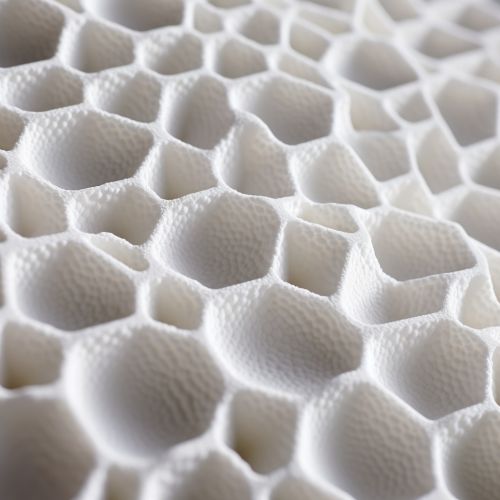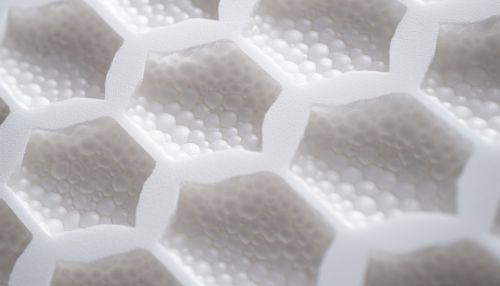Expanded polystyrene
Introduction
Expanded polystyrene (EPS) is a type of polystyrene plastic that has been expanded into a foam material. It is commonly used in a variety of applications due to its light weight, insulating properties, and versatility.


Production
The production of EPS begins with the creation of polystyrene beads. These beads are then expanded using steam in a process known as Pre-expansion. The pre-expanded beads are then aged to allow air to diffuse into the polymer matrix, which prepares them for the final expansion and molding process.
Properties
EPS is known for its excellent thermal insulation properties, which make it a popular choice for insulation in construction. It also has good shock absorption capabilities, making it suitable for packaging delicate items. EPS is also resistant to water absorption and diffusion, which contributes to its durability and longevity.
Applications
EPS is used in a wide range of applications. In the construction industry, it is used for insulation in walls, roofs, and floors. In the packaging industry, it is used to protect goods during transport. EPS is also used in the production of disposable foam products such as cups, plates, and trays.
Environmental Impact
While EPS is a versatile and useful material, it also has a significant environmental impact. It is not biodegradable and can take hundreds of years to break down in the environment. This has led to increasing concern about the environmental impact of EPS waste, and efforts are being made to improve EPS recycling and waste management practices.
